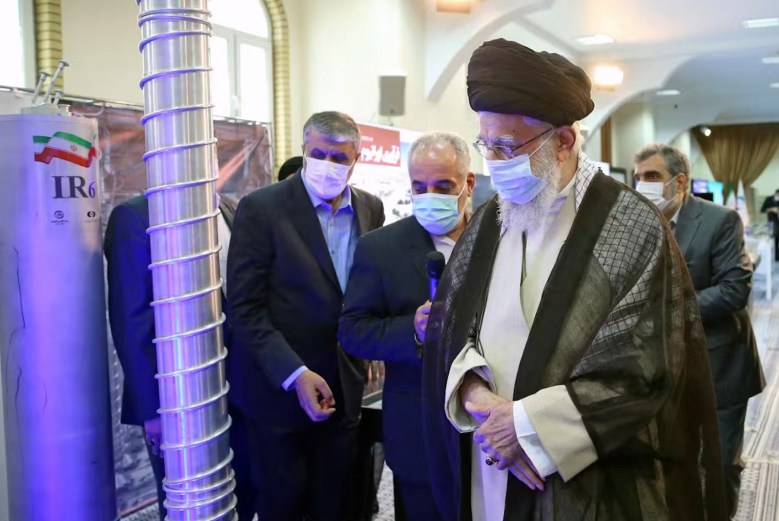Politics
Iran-Israel Conflict Sparks Renewed Debate on Snapback Mechanism

The recent conflict between Iran and Israel has intensified scrutiny of the “snapback” mechanism, a pivotal component of the Joint Comprehensive Plan of Action (JCPOA) established in 2015. This mechanism enables the automatic reimposition of international sanctions if Iran is found to have significantly breached its commitments, a provision incorporated into UN Security Council Resolution 2231 and accepted by Iran and the P5+1 nations, which include the United States, Russia, China, France, the UK, and Germany, with the European Union acting as coordinator.
In light of the escalating tensions following the recent military engagement, the E3 — the UK, France, and Germany — has signalled a willingness to reactivate the snapback provision. This action suggests that they believe Iran has committed breaches warranting the return of sanctions. Such a response is not merely procedural; it reflects a strategic move amidst deteriorating diplomatic relations.
The snapback mechanism operates as a legal valve allowing any of the seven JCPOA signatories to report a significant breach by Iran. If the UN Security Council does not adopt a resolution to block the accusation within 30 days, sanctions would automatically be reinstated, even without the agreement of the permanent members. This unique structure challenges traditional consensus-based operations of the Security Council, leading to significant interpretative disputes.
Iran argues that the unilateral withdrawal of the United States from the JCPOA in 2018 nullifies the legitimacy of the snapback mechanism. Tehran maintains that consent is essential for international treaties, and by pulling out, the U.S. forfeited its rights to invoke the mechanism. Conversely, the U.S. and its allies contend that the right to activate snapback persists independently of formal participation in the agreement. Proponents of this view emphasize the necessity of maintaining strict oversight over Iran to prevent a security vacuum.
This legal debate is emblematic of broader tensions in international relations. For Iran and its allies, such as China and Russia, international law reflects a pact that loses its validity upon breach. In contrast, the U.S. and its partners assert that law can endure beyond consent when aligned with collective security interests.
The situation has also intensified divisions within the Security Council. Russia and China oppose the reactivation of the snapback mechanism, arguing that the lack of consensus renders it ineffective. Their stance not only critiques the U.S. position but also challenges the broader application of multilateral institutions as instruments of Western power.
Domestically, the debate over the snapback mirrors political divides within Iran. Since the signing of the JCPOA, a rift has emerged between proponents of engagement and hardliners who perceive the agreement as a capitulation to Western demands. The U.S. withdrawal has strengthened the hardliners’ resolve, leading to legislative actions that curtail cooperation with the International Atomic Energy Agency (IAEA).
As Iran navigates this complex landscape, the government recognizes the need to maintain diplomatic channels while asserting its sovereignty. This balancing act is crucial for managing internal pressures and mitigating the impact of ongoing sanctions on the economy.
The snapback mechanism, originally conceived to ensure stability, has instead become a focal point of instability within the international legal framework. It highlights the tension between aspirations for a universal order and the realities of power dynamics. Observers note that the mechanism’s unique characteristics — particularly its ability to bypass traditional veto powers — illustrate the ongoing struggle to reconcile law with political realities.
Ultimately, the future of the snapback mechanism and its implications for global governance remain uncertain. As both Iran and Western powers engage in a complex dance of diplomacy and legal interpretation, the stakes extend beyond nuclear compliance to the very foundations of the international legal order. The resolution of this dispute will shape not only Iran’s nuclear ambitions but also the broader context of global governance in a time of shifting power dynamics.
-

 World5 months ago
World5 months agoSouth Korea’s Foreign Minister Cho Hyun to Visit China This Week
-

 Business5 months ago
Business5 months agoStarling Bank Plans Secondary Share Sale, Targeting $5.4 Billion Valuation
-

 Top Stories5 months ago
Top Stories5 months agoMunsang College Celebrates 100 Years with Grand Ceremony
-

 World5 months ago
World5 months agoPAS Aims to Expand Parliamentary Influence in Upcoming Election
-

 Business7 months ago
Business7 months agoKenvue Dismisses CEO Thibaut Mongon as Strategic Review Advances
-

 Lifestyle6 months ago
Lifestyle6 months agoHumanism Camp Engages 250 Youths in Summer Fest 2025
-

 Sports6 months ago
Sports6 months agoDe Minaur Triumphs at Washington Open After Thrilling Comeback
-

 Sports7 months ago
Sports7 months agoTupou and Daugunu Join First Nations Squad for Lions Clash
-

 Top Stories7 months ago
Top Stories7 months agoColombian Senator Miguel Uribe Shows Signs of Recovery After Attack
-

 World7 months ago
World7 months agoASEAN Gears Up for Historic Joint Meeting of Foreign and Economic Ministers
-

 Health6 months ago
Health6 months agoNew Study Challenges Assumptions About Aging and Inflammation
-

 Business7 months ago
Business7 months agoOil Prices Surge Following New EU Sanctions on Russia









